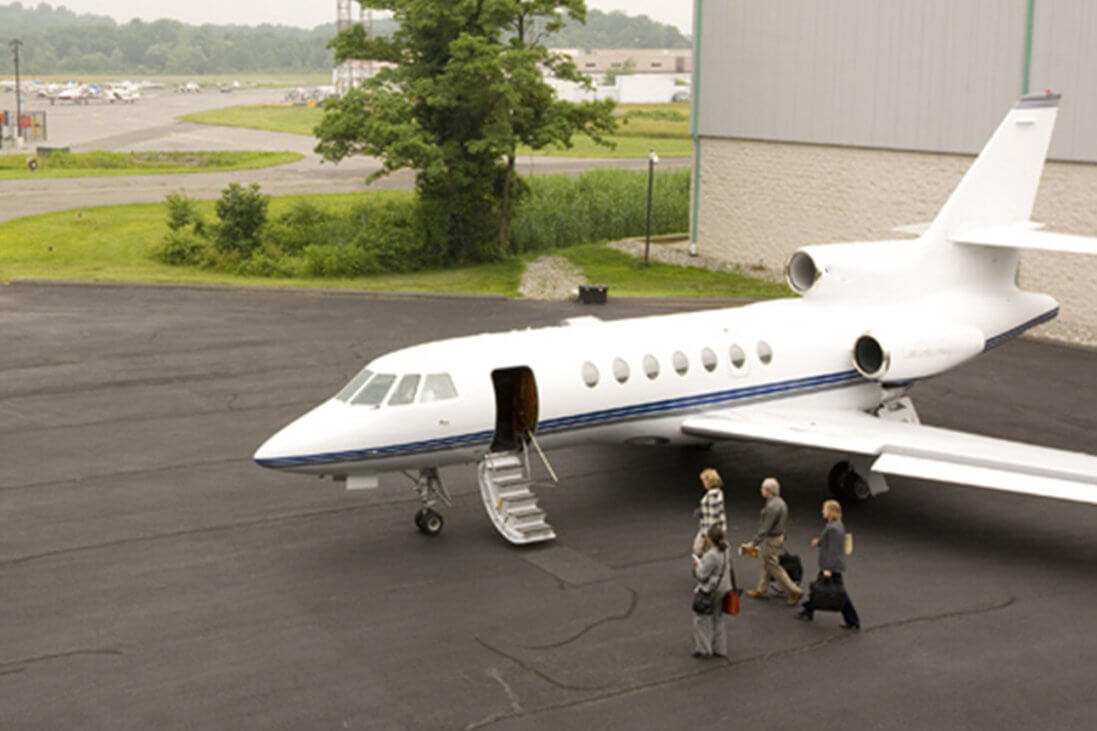
April 16, 2019
Part 91 and 135 operators, along with representatives from FAA’s Flight Standards Office and frontline inspectors, recently met at the Nashville, TN Flight Standards District Office to discuss concerns with illegal charter operations. The summit, the second of its kind in the last six months, was co-hosted by NBAA, the National Air Transportation Association (NATA) and the FAA.
“The concern from Part 135 certificated air carriers stems from being held to a higher safety standard, as they are required to provide more training for pilots, more maintenance for aircraft and file more paperwork with the FAA,” noted Brian Koester, NBAA senior manager, flight operations and regulations.
“While these efforts improve safety, they also lead to increased overhead costs compared to Part 91 operations,” he added. “This creates an opportunity for non-certificated part 91 operators to illegally offer for-hire flights to passengers at a lower price.”
Passengers prefer the higher safety standard created by Part 135, and some ask to see additional safety certifications, such as IS-BAO, yet other travelers base their decision solely on price, without considering the safety ramifications of their choices.
One common form of illegal charter occurs when a Part 91 operator offers to provide lift to an unwary passenger by dry leasing the aircraft to the passenger. A dry lease places the passenger in operational control of the flight, making them liable for any accidents or intendents and making them responsible for things like maintenance and pilot training. While there are legitimate uses for dry leases, often illegal charter operators don’t explain the full ramification of this type of arrangement with the passenger and simply lure the traveler with a low price.
Passengers looking for the safest on-demand air transportation should ask to see an air carrier operating certificate or consult the NBAA Air Charter Consumer Guide for information about verifying the operator, Koester recommended.
Participants at the summit also discussed the challenges of educating consumers and the difficulties of enforcing the regulations. It was suggested that operators and passengers can help is by calling the Air Charter Safety Foundation Illegal Charter Hotline when illegal charter is suspected. The hotline was recently redirected from a voicemail box directly to Ryan Waguespack, NATA vice president of aircraft management, air charter services and MROs and co-host of the summit.
The Air Charter Safety Foundation will maintain anonymity of callers when they forward information to FAA for further investigation. The FAA also assured operators that these calls put operators on their radar, and initiate a process where the agency can increase scrutiny of the alleged illegal operator.
Another form of illegal charter discussed at the summit takes place when certificated air carriers do not fully comply with all regulations. This may occur when a certificate holder adds an aircraft to the certificate, but the owner retains too much control, or the appropriate safety regulations are not followed. FAA officials indicated they will be increasing scrutiny when adding aircraft to certificates moving forward by using a risk matrix to determine if further oversight is needed to ensure safety and compliance.
The FAA’s increased efforts to combat illegal air charter come after a provision in the most recent FAA reauthorization bill directed the agency to provide a report to Congress on illegal charter operations and the enforcement processes.
“NBAA will continue to monitor incidents of illegal charter and work with the FAA and other stakeholders to share information on how to avoid operators who utilize illegal or unethical practices,” said Koester.


 International Business Aviation Council Ltd.
International Business Aviation Council Ltd.